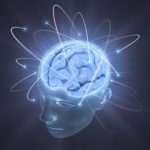Why is it important to preserve brains?
Brain preservation can preserve what is completely lost at death today:
- We hope that brain preservation technology will one day become a viable alternative to death, available to everyone who might desire it. Instead of dying, you would have the medical option, and perhaps eventually the legal right, to have your brain preserved. The information that comprises your unique self can then be maintained indefinitely in your preserved brain until humanity develops the technology to revive you.
- Alternatively, for those who do not wish to be consciously revived in the future (restored to “self awareness”), brain preservation would give each of us the option to donate just our memories and personal histories to our loved ones, to science, or to society. Our memories are an incredibly rich legacy of knowledge and experience we may soon be able to leave for the next generation, if we wish. Via automated brain scanning, neuroscience, and neural modelling, we may be able to inexpensively read preserved human brains well enough to reconstruct either limited memories or full self-awareness in computers, as desired by the individual. Given current rapid progress in these technologies, inexpensive reconstruction might occur some time this century, while our loved ones are still alive.
- Whole human brain preservation enables many exciting areas of scientific and medical research, such as mapping the human connectome for better understanding human mental health and disease, and gathering data to better treat a broad array of brain disorders and diseases, such as autism, schizophrenia, and Alzheimer’s disease.
Recent Posts






